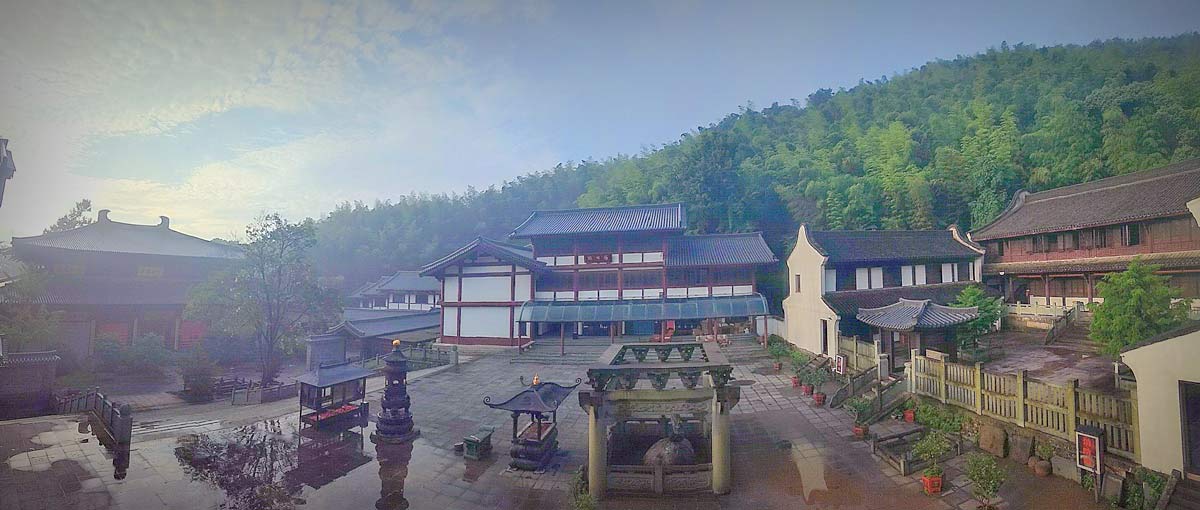This month I am far from my birth home in Montana and my adoptive home in Seattle. I am in China, currently in a monastery outside of Ningbo called “Golden Mountain.” As I told a friend recently when discussing my travels, there is a saying, attributed to Native American wisdom, that a person should not travel further in a day than a horse can carry them. That is, humans are not just spiritual creatures or social creatures, but also local and geographical creatures. We are not just intellects, but bodies, intimately connected to our physical space.
How precious and how liberating it is to really know a place, to know what to expect around each corner, the ebbs and flows of each time of day, the norms and customs, the currencies and laws. How equally demanding and perhaps frightening to be a stranger in a strange land. There is a wonder, no doubt, in being in new places. But this wonder must be born of a security and comfort in one’s body. To explore the globe, one must know one’s self, one’s body.
So here, in my room in the very early hours of a Saturday morning, I meditate.
I begin, as I always do, with the breath as a conduit to the present moment, an anchor holding me in place. The morning bell rings down the hill. Birdsong surrounds me. Light overcomes the darkness.
As one of my teachers, Richard Gombrich, writes, “Famously, the Buddha’s approach to life’s problems was pragmatic.” Thus, Gombrich explains, when the Buddha discusses “the world,” he is pointing to the world of our experience. The world as an abstract thing had no importance to him.
Thus, in our travels in the world, we can look at this world of experience more deeply. Where am I uncomfortable? Where do I feel at ease here? Where have I prepared adequately? Where have I mindlessly managed to lose a belonging or myself?
Some people travel as if to reach the world’s end, to know or discover all of it, or at least the most remote or interesting bits. I believe a phrase that young people use these days is YOLO, you only live once. This in mind, they seek out as much of the world “out there” as they can, often not realizing that the phrase – should it be true – applies more importantly to inner exploration and knowledge.
I do not say that there is a world’s end to be known or seen or reached where one is not born, does not age or die or pass on or reappear. Yet I do not say that suffering can be ended without reaching the world’s end. Moreover, I declare the world, the arising of the world, the cessation of the world, and the way leading to the cessation of the world to be in this very fathom-long carcase with its perception and its mind.
Never can the world’s end
Be reached by travel,
But there is no escape from pain
Without reaching the world’s end.” (SN I, 62, from What the Buddha Thought, p.68)

